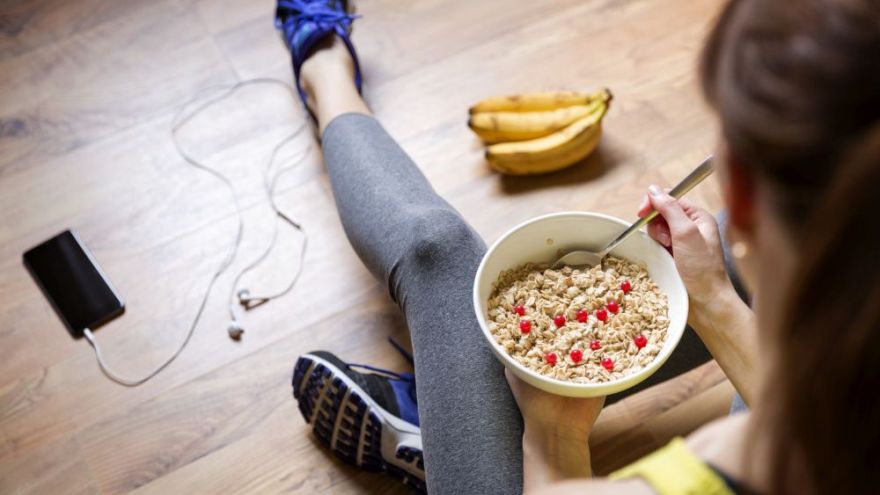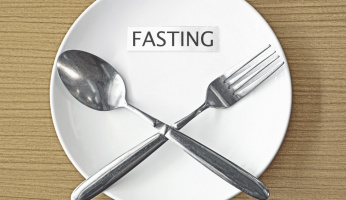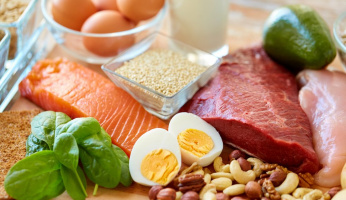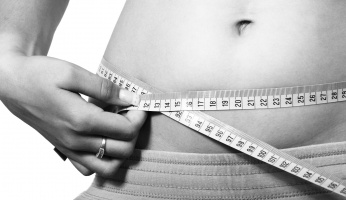5 Foods to Absolutely Avoid Before Running or Exercising
 5 Foods to Absolutely Avoid Before Running or Exercising www.walkjogrun.net
5 Foods to Absolutely Avoid Before Running or Exercising www.walkjogrun.net When I think about 5 foods to absolutely avoid before going for a run or an exercise, it takes me back to the 2 times in my life that I felt sick while running. The memories make my stomach uneasy. I was eating breakfast before I did an annual 10k in Charleston, SC. I figured I will eat this boiled egg now, I will eat the banana on the road to the start line, and the granola bar before the race starts (#badidea).
I had no issues until 15 minutes after I started running. I felt nauseous and bloated that entire run and I could not figure out what it was. I always eat bananas before I go running and granola has never given me an issue before. What could be causing me all of this discomfort? The guilty party was the egg! In the midst of haste I forgot that I only eat an egg after I exercise. Ugh!

The other time I ate beef tacos at work for lunch and I overindulged. They were so delicious! But, I paid for it the whole 2 miles while I was running. Plus it was hot. I figured I would be fine since it had been at least 4 hours since I ate. Nope. And I vowed not to eat beef tacos or anything made with beef prior to running again. Let’s just say that was a very miserable run.
The 5 foods to avoid before a run!
Foods that you may want to avoid during exercise or running include:
- High protein
- Chocolate
- Caffeinated drinks
- High fiber foods
- Milk products
*some other foods are legumes and starchy vegetables
You see, it takes approximately 48-72 hours for food to digest. More specifically, it can take proteins around 2 days to digest completely due to their complexity. While it takes fruits and vegetables less than a day. All of this is dependent on the individual’s gender, metabolism, how much of each of the items eaten, and if they have any issues with digestion.
So, while you are running, you want to make sure the foods you are eating will not cause any bloating, diarrhea, stomach cramping, stomach pain, nausea, or vomiting. Also, caffeine is a diuretic/stimulant so it can cause you to have increased urges to go to the bathroom.
Foods easy on digestion
If a specific food is easily digested, it will take less energy to break that item down by your body. This food item will not take energy away from your performance, but provide the fuel your body needs to get through the exercise. Some of the foods that are easy to digest are as follows:
Fruits
- Very ripened bananas
- Watermelon
- Cantaloupe
- Avocados
- Skinless fruit
Cooked vegetables
- Pumpkin
- Carrots
- Spinach
- Beets
- Green beans
The grains that are easy on the digestive system are white breads, crackers, and plain bagels. You can also keep some items such as honey around to eat right before a run to give you a carbohydrate boost.
If you are going for an early morning run, it is not necessary that you eat anything before depending on the intensity and duration. An exercise is considered light if it lasts less than an hour. Always listen to your body.

For light exercise, I personally need a snack, which may consist of ½ cup of watermelon or ½ of a banana because I wake up hungry. Now, if you are going to be exercising for more than 30 minutes, you will want to eat a small meal with items that are easy to digest.
If your workout will be later in the day, a meal 2-3 hours before should be enough time for you not to have any digestive complications.
Things to remember
Remember, it is all about balance and listening to your body. The things that work for you may not work for someone else and may affect someone else’s body differently. So find what works for you and stick with it. Meals are important for fueling your body throughout the day and your exercises. Your meals should be balanced and support your daily activities.
If you are having any digestive concerns that cannot be managed by switching up the time or food you eat, please contact your Physician or Primary Care Provider (PCP). There may be an underlying condition that you are not aware of.
Also, if you are not sure you are consuming enough food or the right items use your Physician or PCP as a resource. They can refer you to a Nutritionist who can help you meet your nutritional goals.
Sources
- , What You Should and Shouldn't Eat Before a Run, Health Website
- , Dietary restrictions in endurance runners to mitigate exercise-induced gastrointestinal symptoms, Journal of the International Society of Sports Nutrition
- , How Long Does It Take to Digest Food? All About Digestion, Health Website















